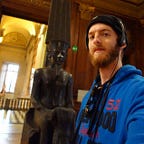Outliers — Summary
In this book Malcolm Gladwell asks the question: what makes high-achievers different?
The myth of talent
Our culture tends to attribute an individuals success to his or her talent and abilities, a so called “self-made” individual. It turns out that the “self-made man” is a myth.
There are many hidden factors which play an important role in every persons success.
The abilities/qualities threshold
Once a certain level of ability or quality is reached, going beyond that point does not make that much difference in a persons life.
Example: Once a basketball player has reached a certain height, having an extra couple of inches would not make that much a difference for the player.
The same is true for the IQ of an individual. Over the years there has been done an enormous amount of research to determine whether a person’s performance on IQ tests like the Raven’s test translate to real life success.
An IQ score below 70 is considered to be mental disability. A score of 100 is average and probably enough to be able to handle college. For competitive a graduate program meanwhile, you probably will need at least a score of 115.
The higher your score, the more education and money you will get and strangely enough, the longer you’ll live. But this correlation is only true up to a point.
Once an individual has reached an IQ around 120, having additional IQ points doesn’t seem to produce a measurable real-world advantage.
Example: A scientist with an IQ of 130 is as likely to win a Nobel Prize as is one whose IQ is 180.
There are people like Chris Langan who have an IQ of 195, that’s 30% more than the 150 points of Einstein’s IQ. But that doesn’t mean that Langan is 30% smarter than Eistein. The IQ threshold means that both are smart enought to reason about really hard things like physics.
The 10.000 hours for world-class mastery.
Talent is certainly a key ingredient for success but talent alone won’t do it. All world-class performers have invested an enormous amount of time of practice.
Example: Bill Gates spent an enormous amount of time learning computer programming.
The beatles spent an enormous amount of time on stage before they became world-class.
Studies have shown that in order to get to world-class mastery, you need to spend around 10.000 hours of practice. That is a lot of time, it can take a decade to put in that amount of time into practice. Which is why you have to start earlier.
But depending on what you do, you’ll also need the equipment necessary to practice. Bill Gates was very lucky to go to a private school called Lakeside in 1968, one of the few schools at that time to open a computer club with a computer terminal.
Practical intelligence
Sociologist Annette Lareau found that children from wealthier families tend to have more chances for success than children from poorer households. That is because of practical intelligence.
Practical intelligence is a procedural knowledge which enables you to change situations to get what you want.
In other words, the ability to interact and negotiate with other people including authority figures, to know who to ask what, how and when.
Wealthy parents teach their children to customize a situation to suit to their needs. Poorer parents tend to let their children follow the pattern of “natural growth”.
This means that children from a poorer background tend to have less practical intelligence.
Where you geographically com from, can have an impact on what you achieve
The “Asians are good at math” stereotype actually has some fundament.
One reason is language, when children learn the words for numbers in asian languages, they learn to add them up too.
Another reason could be the work ethic of rice farming. Farming rice is much harder than farming western crops. It demands precision, coordination and patience.
Research has shown that students from western countries give up on math problems far sooner than students in eastern countries do.
Recognizing the importance of cultural legacy can help
Example: Korean Air, an airline which had a terrible safety record before the year 2000 corrected its safety by hiring an American firm which helped improve its flight crew’s communication skills.
The problem was that the Korean cultural values, which include respecting authority figures in a sense that you should always defer to an individual with higher rank, had become the cause of at least one of many accidents.
In one case the flight’s first officer tried to tell the exhausted captain that the visibility was too low to attempt a visual landing. But in order to avoid offending the captain with an explicit command, he merely said, “Don’t you think it rains more, in this area, here?”. The captain of course ignored the officer’s timid comment about the weather and their plane crashed into a hill.
The key message of the book: Extraordinary success is often a series of lucky opportunities and a lot of practice.
